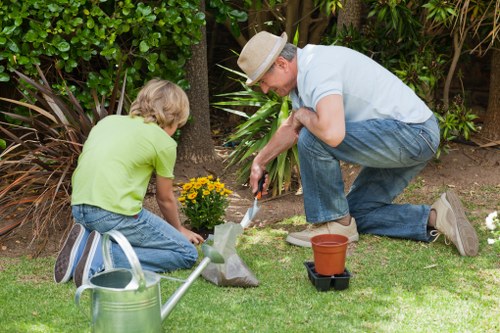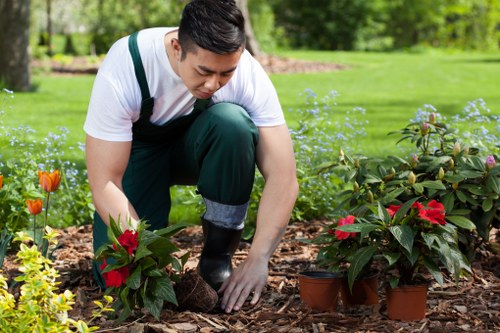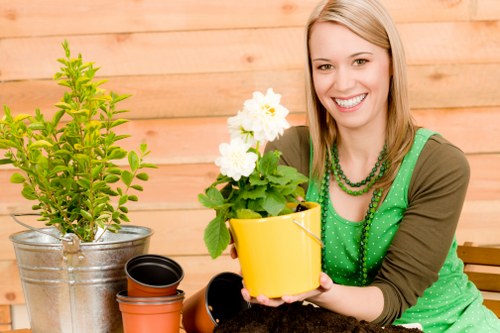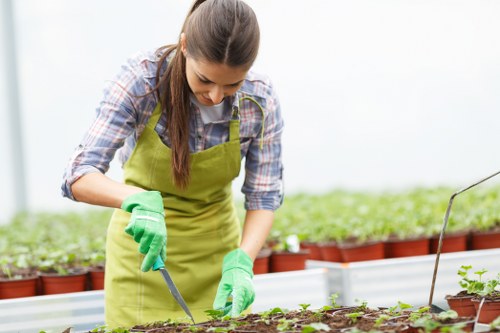Gardening in Forrestfield: Cultivating a Thriving Green Space
Introduction to Gardening in Forrestfield

Gardening in Forrestfield is more than just a hobby; it's a way of life. Nestled in the heart of Western Australia, Forrestfield boasts a climate and soil conditions that are perfect for a variety of plants. Whether you're a seasoned gardener or just starting out, understanding the unique aspects of gardening in this region can help you create a beautiful and sustainable garden.
The community in Forrestfield is passionate about green spaces, and there are numerous resources available to help you succeed. From local nurseries to gardening clubs, you'll find plenty of support and inspiration.
In this article, we'll explore the best practices for gardening in Forrestfield, including plant selection, soil preparation, watering techniques, and pest management. We'll also highlight the nearby areas that offer additional gardening opportunities and services.
Choosing the Right Plants for Forrestfield

Understanding the Climate
Forrestfield enjoys a Mediterranean climate with mild, wet winters and hot, dry summers. This climate is ideal for a wide range of plants, including native species and drought-tolerant varieties. When selecting plants, it's essential to consider their adaptability to these conditions to ensure they thrive.
Native plants are an excellent choice as they are well-suited to the local climate and require less maintenance. Species like Kangaroo Paw, Grevillea, and Banksia not only add beauty to your garden but also support local wildlife.
For those looking to add a touch of color, consider flowering annuals such as lavender, marigolds, and petunias. These plants can brighten up your garden and are relatively easy to care for.
Soil Preparation and Management

Testing Your Soil
The first step in preparing your garden is understanding your soil composition. Forrestfield's soil can vary, so conducting a soil test is crucial. This test will reveal the pH level and nutrient content, allowing you to amend the soil appropriately.
Most plants thrive in well-drained soil with a pH level between 6.0 and 7.0. If your soil is too acidic or alkaline, you can adjust it by adding lime or sulfur, respectively.
Incorporating organic matter such as compost or well-rotted manure can significantly improve soil structure, fertility, and water retention. Regularly adding organic material to your garden beds will promote healthy plant growth.
Watering Techniques for a Lush Garden

Efficient Irrigation Systems
Water conservation is vital in Forrestfield, especially during the hot summer months. Investing in an efficient irrigation system can help you maintain a lush garden while minimizing water usage.
Drip irrigation and soaker hoses are excellent options for delivering water directly to the plant roots, reducing evaporation and runoff. These systems ensure that your plants receive the right amount of water without waste.
Additionally, incorporating rainwater harvesting systems can provide a sustainable water source for your garden. Collecting and storing rainwater not only conserves water but also reduces your reliance on municipal water supplies.
Pest and Disease Management

Organic Solutions
Maintaining a healthy garden involves managing pests and diseases effectively. In Forrestfield, integrated pest management (IPM) strategies are recommended to minimize the impact on the environment.
Introducing beneficial insects, such as ladybugs and lacewings, can naturally control pest populations. Additionally, using organic pesticides and fungicides can help manage infestations without harming beneficial wildlife or contaminating the soil.
Regular monitoring and early detection of pest problems are crucial. Prompt action can prevent minor issues from escalating into significant threats to your garden's health.
Seasonal Gardening Tips
Spring and Summer Care
During the spring and summer months, focus on planting heat-tolerant species and ensuring adequate water supply. Mulching your garden beds helps retain moisture and regulate soil temperature, reducing the stress on your plants.
Pruning and deadheading flowers encourage new growth and maintain the overall appearance of your garden. It's also an ideal time to fertilize your plants to support their rapid growth.
Stay vigilant for common summer pests such as aphids and caterpillars, and address any issues promptly using organic methods.
Autumn and Winter Gardening Practices
Preparing for Cooler Months
In autumn, focus on planting bulbs and perennials that will bloom in the spring. This is also an excellent time to clear out any dead plant material and prepare your garden beds for the winter season.
Applying a layer of mulch can protect your plants' roots from freezing temperatures and prevent soil erosion. Additionally, consider planting cover crops to enrich the soil with organic matter.
During winter, maintain your garden by monitoring for pests and diseases that can survive the colder months. Planning for the next planting season will ensure a smooth transition when spring arrives.
Gardening Tools and Supplies
Essential Equipment
Having the right tools can make a significant difference in your gardening experience. Essential tools for gardening in Forrestfield include:
- Hand Trowel: Perfect for digging small holes and transplanting seedlings.
- Pruning Shears: Essential for trimming and maintaining plant health.
- Garden Fork: Useful for aerating soil and breaking up clumps.
- Watering Can: Ideal for targeted watering of delicate plants.
- Wheelbarrow: Helps in transporting soil, compost, and plants around your garden.
Investing in high-quality tools ensures durability and efficiency, making your gardening tasks easier and more enjoyable.
Additionally, consider storing your tools properly to prevent rust and damage, extending their lifespan.
Local Resources and Support
Gardening Communities
Forrestfield offers a wealth of local resources to support gardeners of all levels. Joining a gardening club or attending workshops can provide valuable insights and foster a sense of community.
Local nurseries and garden centers are excellent places to find native plants, gardening supplies, and expert advice tailored to the Forrestfield area.
Additionally, connecting with neighboring gardeners through community gardens or online forums can lead to mutual support and the sharing of best practices.
Top Nearby Areas for Gardening Enthusiasts
Exploring Surrounding Regions
Forrestfield is surrounded by several areas that offer unique gardening opportunities and services. Here are some of the closest areas to consider:
- Redcliffe: Just 10 minutes away, Redcliffe features community gardens and local plant nurseries.
- Parkwood: Known for its spacious parks and horticultural events.
- Karragullen: Offers extensive green spaces and gardening workshops.
- Swan View: Home to several botanical gardens and eco-friendly gardening initiatives.
- Kiara: Features a variety of landscaping services and plant retailers.
- Greenmount: Known for its fertile soil and thriving agricultural community.
- Walebing: Offers specialty gardening shops and organic farming resources.
- Atwell: Home to innovative gardening solutions and sustainable practices.
- Gosnells: Features a mix of residential and community gardening projects.
- Upper Swan: Offers picturesque garden settings and horticultural tours.
- Perth Airport: Nearby, with convenient access to gardening supplies and services.
- Leschenault: Known for its detailed landscaping and garden design services.
- Midland: Offers urban gardening opportunities and local plant markets.
- Greenhills: Features community-supported agriculture and gardening education programs.
- Success: Known for its vibrant gardening community and seasonal plant sales.
Sustainable Gardening Practices
Eco-Friendly Tips
Embracing sustainable gardening practices not only benefits the environment but also enhances the health of your garden. Here are some eco-friendly tips for gardening in Forrestfield:
- Composting: Recycle kitchen scraps and garden waste to create nutrient-rich compost for your plants.
- Rainwater Harvesting: Collect and reuse rainwater to reduce reliance on municipal water sources.
- Mulching: Use organic mulches to conserve moisture, suppress weeds, and improve soil health.
- Natural Pest Control: Utilize beneficial insects and organic pesticides to manage pests without harming the ecosystem.
- Native Plant Selection: Choose native species that require less water and are more resistant to local pests and diseases.
Implementing these practices will lead to a more resilient and sustainable garden, ensuring its beauty for generations to come.
Additionally, reducing chemical usage protects local wildlife and promotes biodiversity within your garden.
Conclusion

Gardening in Forrestfield offers a rewarding experience, enriched by the area's supportive community and favorable climate. By selecting the right plants, preparing your soil, managing water efficiently, and embracing sustainable practices, you can cultivate a thriving garden that enhances your home's beauty and provides a sanctuary for local wildlife.
Remember to take advantage of the local resources and connect with nearby gardening communities to continually improve your gardening skills and knowledge. Whether you're tending to a small balcony garden or managing a large backyard, Forrestfield provides the perfect setting for your gardening endeavors.
Contact us today to start your gardening journey in Forrestfield and transform your outdoor space into a lush, vibrant haven.
